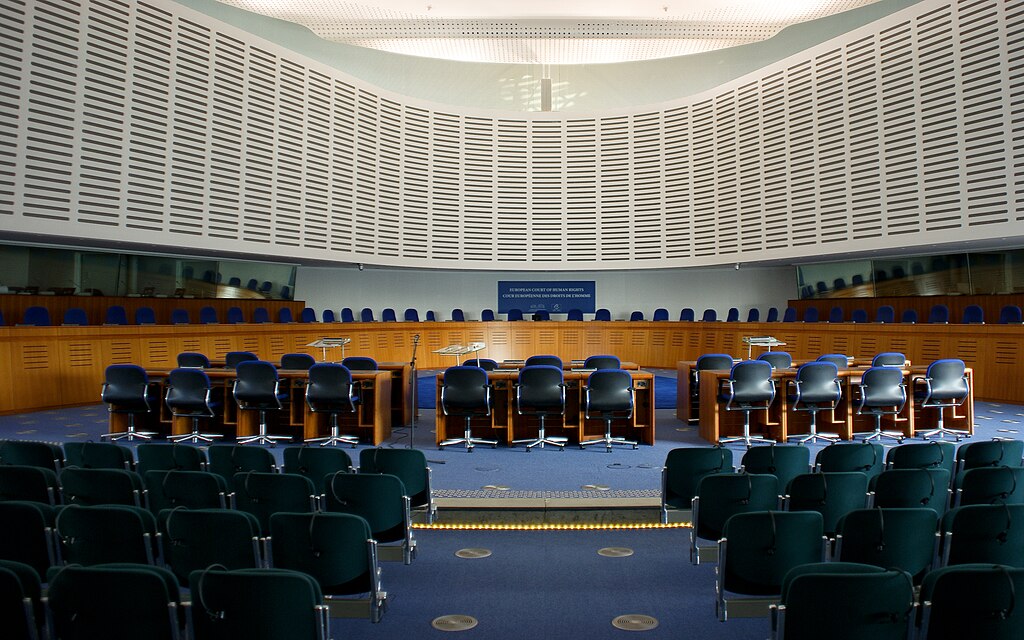Tim Eicke defends the European Court of Human Rights as Westminster debates UK withdrawal
12 October 2025 — Britain’s outgoing judge at the European Court of Human Rights has declared that the Strasbourg institution is “more necessary and more relevant than it has been for decades”, issuing a pointed defence of its role as political pressure mounts for the UK to leave the European Convention on Human Rights (ECHR).
Tim Eicke KC, whose nine-year tenure as the UK’s representative on the court ended last month, made the remarks in his first public speech since stepping down. Addressing the Legal Wales conference in Bangor on Friday, Eicke rejected claims that the convention no longer serves Britain’s interests, insisting that it remains essential to safeguarding fundamental freedoms.
His comments came days after the Conservative Party renewed its call to withdraw from the ECHR. Party leader Kemi Badenoch argued that quitting the convention would enable the government to strengthen border controls, limit legal challenges by activists, and make sentencing tougher.
Embed from Getty Images
Eicke, however, said the court’s purpose had not diminished but become more urgent, stressing that recent public debate often misrepresents its work. “I hardly recognise the court I know from much of the commentary,” he said. “The original purpose of the convention is now more relevant and more necessary than for some time.”
Recalling the court’s contribution to the UK’s legal development, Eicke listed landmark cases that reshaped society and justice at home. He cited the abolition of corporal punishment such as birching in the 1970s, the exposure of the thalidomide scandal, the lifting of the ban on gay people serving in the armed forces, and the reopening of the Hillsborough public inquiry.
“For seventy years the convention has repeatedly stepped in when domestic courts could not provide the protection we now take for granted,” he said. “It has safeguarded rights that define the society we live in.”
Addressing critics who accuse the Strasbourg court of exceeding its original post-war mandate, Eicke defended the doctrine that the convention is a “living instrument”—one that must evolve with Europe’s social and political realities, including conflicts such as the war in Ukraine.
The judge also confronted one of the most politically charged issues driving opposition to the ECHR: migration. Badenoch and other senior Conservatives have argued that Britain’s membership undermines efforts to control its borders.
But Eicke said immigration-related cases represent only a “relatively small part” of the court’s workload. “Frequently, single judges declare such applications inadmissible,” he explained, adding that Britain’s own judiciary already handles most such matters effectively.
According to Eicke, 274 applications involving UK immigration cases are currently pending, but few are likely to reach a full hearing. “The domestic courts do such a good job in interpreting the law that there is little for the European court to improve on,” he said.
Citing data from a recent University of Oxford report, Eicke noted that the European court has ruled on 29 UK cases concerning the removal of foreign nationals. In 16 of those, judges found no breach of the law, allowing deportations to proceed.
His comments appear aimed at countering claims that the Strasbourg court routinely blocks the UK from enforcing immigration policy.
Eicke’s speech was widely interpreted as a firm rebuttal to political rhetoric suggesting that Britain’s continued membership of the ECHR undermines national sovereignty. By highlighting its historic and ongoing influence, he framed the convention as a cornerstone of post-war European stability—an institution, he argued, that remains indispensable amid modern global crises.
With his departure, the UK now awaits the appointment of a successor to represent it at the court in Strasbourg. The government has yet to indicate whether the next judge will maintain Eicke’s outspoken defence of Britain’s role within Europe’s human-rights framework.
